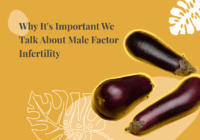Despite being a relatively common condition among women, we still have much to learn about polycystic ovary syndrome (PCOS). As a result, effectively treating PCOS to reduce symptoms, manage long-term risks, and improve fertility can often seem challenging.
At Dr. Tanya Williams Fertility Centre, we frequently receive inquiries about PCOS. When we mention that research shows diet and exercise can significantly impact managing PCOS, some clients wonder if this is just a standard recommendation for every health issue.
In the article below, we will explore PCOS and evaluate how diet plays a crucial role in managing its effects.
What is PCOS and what causes it?
Polycystic ovary syndrome (PCOS) is a common hormonal disorder affecting about one in ten women worldwide. In PCOS, insulin resistance causes the ovaries to produce excess androgen (male hormone).
This excess androgen disrupts the FSH (follicle-stimulating hormone) signal from the pituitary, which normally stimulates egg maturation. As a result, ovulation becomes infrequent or absent, leading to decreased fertility. Women with excess androgen often experience acne, facial hair, hair loss, and weight gain. Additionally, ultrasound often reveals multiple small cysts around the edges of the ovary, which is how the condition gets its name, polycystic ovary syndrome.
The long-term risks associated with PCOS include:
- Diabetes
- Hypertension
- Cardiovascular disease
- Depression
- Increased risk of endometrial cancer
Sadly, we still do not fully understand the exact cause of PCOS. Experts believe that genetic and environmental factors contribute to its development. Although PCOS has no cure, making lifestyle changes can improve symptoms and increase a patient’s chances of pregnancy.
How does diet affect PCOS?
Research shows that making healthy dietary choices can positively impact the symptoms of PCOS. The two main benefits of healthy eating for PCOS patients are weight management and reduced insulin resistance.
PCOS is linked to insulin resistance, although we do not fully understand this relationship. This insulin resistance can lead to diabetes later in life, with nearly 50% of people with PCOS developing diabetes or pre-diabetes.
While there is no standard diet for PCOS, eating foods that improve insulin sensitivity can help lower androgen levels, which are responsible for PCOS symptoms.
What to eat and what not to eat when you have PCOS?
You may have heard people profess that a certain diet or swearing off a certain type of food is enough to rid yourself of your PCOS symptoms.
There’s no research to suggest that PCOS has a connection with any single food. Therefore, you should not delete any food group from your diet unless you have a specific food intolerance.
However, it is important to strive to maintain a healthy body weight which will improve your quality of life. With that in mind, there are certain foods you should be aware of that can help improve the long-term risks and short term symptoms of your PCOS, such as:
Low Glycemic Index (GI) foods:
- Carbohydrate-containing foods that have a low glycemic index (GI) are processed slowly in the body, which means that your blood sugars rise at a slower rate.
- Foods that have a high glycemic index are digested and absorbed quickly, causing a rapid rise in blood sugar. If chronic, this elevation in blood sugar increases the risk of developing diabetes.
- Foods that have a high GI are white rice, white bread, potatoes, and pasta; and foods with a low GI include foods that are high in fibre like green vegetables, most fruits, raw carrots, kidney beans, chickpeas, and lentils. Studies have found that eating low GI foods have been linked to better management of PCOS symptoms.
Anti-inflammatory foods:
- In the world of diets, there is a lot of talk about foods that can lower inflammation. In reality, inflammation is simply your body’s way of fighting off infection, but there is something called chronic inflammation, in which your immune system is overstimulated all the time.
- Those with PCOS have a greater risk of developing chronic inflammation, although just like with diabetes, the exact nature of this relationship is still unclear.
- Regardless, eating anti-inflammatory foods can greatly increase your overall health and wellbeing. These include eating fruits and vegetables, beans and legumes, sources of poly- and monounsaturated fats like avocados, nuts and olive oil, and limiting red meat.
Weight loss and PCOS
PCOS can make it a lot easier to gain weight. This extra weight can worsen your PCOS symptoms. There is no single recommended diet for PCOS but it is important to maintain a healthy lifestyle.
A healthy lifestyle includes regular exercise and eating a healthy diet. This includes a variety of vegetables, fruits, legumes, whole grains, low-fat or fat-free dairy products, good fats such as olive oil, avocados and nuts, and adequate amounts of protein. You should also avoid trans fats, saturated fats, processed sugars and excessive sodium.
Although there is no diet prescribed for PCOS, the Mediterranean diet has been proven to have good results. This is because it involves eating a lot of low GI foods and anti-inflammatory foods.
The Mediterranean diet has also been shown to improve fertility. A recent study found that women who tried the Mediterranean diet were more successful in getting pregnant than women who were not on the diet.
PCOS and your fertility journey
It can be quite alarming to learn that PCOS affects your fertility. It can sometimes make you feel hopeless and anxious.
But while PCOS may pose an obstacle to your goal of starting a family, it’s not the end of the road. You can get pregnant with PCOS. In addition to lifestyle modification, there are a number of fertility options available to help you. These include ovulation induction agents, insulin sensitizers, occasionally a minor surgical procedure, and also IVF.
A combination of lifestyle changes and the right fertility treatment is often used in tandem to help you achieve a healthy pregnancy. Remember there are always options on your fertility journey.
If you are having fertility issues, Dr. Tanya’s Fertility Centre can help. Contact us today, and we can get started on discovering the best solution for you.
Discover more related blogs from Dr. Tanya Williams Fertility Centre:






